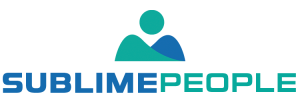Hiring the right people can make all the difference when it comes to building a successful team. From finding the best candidates, to onboarding them and ensuring they stay on board, there are many key roles that need to be completed in order for your recruiting team to thrive.
In this blog post, we’ll explore key roles created by having a collaborative job’s hiring team. We will look at some potential benefits they may offer when implemented correctly. Read on to discover how taking advantage of such an innovative model can help you hire high-quality talent without compromising on resources or deadlines.
In this Article:
What does meeting with hiring team mean?
Meeting with a hiring team is an important step in the hiring process. it gives prospective employees the opportunity to demonstrate their skills and qualifications face-to-face. A recruiting team typically consists of supervisors from the hiring organization and usually includes human resources representatives. During this meeting, recruiters have the chance to engage with potential hires on a more personal level. They ask questions about their work experience, educational background, and career goals. This interaction allows hiring teams to gauge how candidates will fit into their desired culture and determine whether they are the right fit for the open position. Ultimately, meeting with hiring teams gives hiring organizations the ability to make decisions that are research-driven and informed.
Can I say, dear hiring team?
When attempting to make a solid impression on the hiring team, it is important to consider how you present yourself in an interview. Starting off by addressing the hiring team with a friendly and respectful salutation such as ‘Dear hiring team’ can be an effective way to demonstrate politeness and show that you are truly interested in being hired for the job. Taking the time to address the hiring team with courtesy sends a clear message that you appreciate the opportunity while also demonstrating your overall respect for the hiring process.
How do you build a team for hiring?
1. Define the roles you need to fill
The first step in building a team for hiring is to define the roles you need to fill. This will vary depending on the size and structure of your company, but it is important to be clear about what positions need to be filled and what skills and experience are required for each role.
2. Identify the right people for the team
Once you have defined the roles you need to fill, you can begin to identify the right people for the team. This includes both internal and external candidates. For internal candidates, consider those who have demonstrated leadership qualities or have experience leading a team. For external candidates, look for those with a proven track record in recruiting or HR.
3. Train your team
Once you have identified the right people for the team, it is important to train them on how to effectively carry out their roles. This training should cover topics such as how to screen candidates, how to conduct interviews, and how to evaluate candidates.
4. Set clear expectations
It is also important to set clear expectations for your team. This includes defining what success looks like and setting timelines for each stage of the hiring process. By setting clear expectations, you can ensure that your team is aligned with your company’s goals and objectives.
5. Hold regular meetings
Finally, it is important to hold regular meetings with your team. This will allow you to provide feedback on their performance and give them an opportunity to ask questions or raise concerns. Additionally, regular meetings will help to keep your team focused on their goals and ensure that everyone is on the same page.
5. Monitor the entire hiring process
Finally, it is important to keep track of the hiring process from start to finish. This includes keeping a close eye on the recruitment team structure, hiring managers, and hiring teams, scheduling interviews, interviewing candidates, and making the final hiring decision. By monitoring the entire hiring process, you can ensure that your hiring team is hiring the best candidates for the job and providing a positive candidate experience.
What does a hiring committee do?
The hiring committee is an essential part of the hiring process. They are the brains behind hiring decisions and they serve as a critical checkpoint to ensure the hiring process is fair, accurate, and professional. The hiring team reviews applications, interviews candidates, evaluate resumes and references, conducts background checks, and researches potential risks associated with hiring a new employee.
Most importantly, they provide valuable input into the hiring decision-making process in order to ensure that the very best candidate is chosen for each position. Without a hiring team, HR departments would struggle to make successful hiring decisions due to a lack of time and resources. A good hiring committee can really make or break a staffing initiative for any organization.
7 key roles: The structure of a recruitment team
1. The recruiter(s)
“Recruiter” is often a generalized label for someone who finds and communicates with possible candidates. However, the recruiters on your team are probably doing so much more. From scheduling job interviews to taking specifications from departments in the company to making offers to potential employees. This illustrates that their role goes far beyond simply sourcing prospects. Their role requires them to wear many different hats as part of their daily duties. They are responsible for sourcing qualified candidates, screening applications, conducting initial interviews, and recommending top candidates to hiring managers.
2. Head of Human Resources
As part of the personnel life-cycle, and often working behind the scenes, HR Leads play an indispensable role in recruitment. This position is vital for:
- hiring
- training and developing new employees
- understanding the company’s hiring needs
- creating job descriptions to attract qualified candidates
- establishing hiring processes within legal and ethical standards
- monitoring hiring progress and managing hiring budgets.
3. Talent Sourcer
Resource professionals are responsible for identifying the most talented individuals to fill vacant positions within a company. This requires them to invest vast amounts of time and effort in finding the perfect candidates for each job opening. This entails:
- Understanding the company’s goals
- CV parsing
- evaluation of Job postings on job boards and social media platforms
- Ensuring that candidate aptitude and disposition match the desired role;
- Centralizing all job applications in an ATS (no longer will resumes be buried deep within email inboxes!);
4. Hiring Manager
The hiring manager plays an integral role in the hiring process. They are responsible for;
- Defining the job duties and hiring requirements and conducting initial interviews
- Making hiring decisions and ensuring that the hiring process is fair and transparent.
5. Interviewers
Interviewers are often members of the hiring team who conduct more in-depth interviews with those chosen to move forward in the hiring process. They will ask questions about skills, experience, and company culture during the interview process. Interviewers are also responsible for assessing a candidate’s knowledge and skills before hiring, as well as evaluating the potential of hiring them.
6. Team Members
Team members may include department heads or other personnel who have an understanding of the needs of the position being filled. The team members work together to decide which candidate is the best fit for the job.
7. Executives/ CEO
The hiring team often includes the company executive or CEO, who makes the ultimate hiring decision. The executive reviews all of the hiring materials and conducts a final interview with the top candidates before making their hiring decision. The CEO of the company may not always be physically present during the recruitment process, but can still be part of the recruitment process virtually.
The hiring team plays an important role in the recruitment process, from hiring to onboarding and beyond. They ensure that the hiring process is effective and efficient, finding qualified candidates who will be successful in their roles. The hiring team also provides important feedback to hiring managers and makes sure that the entire hiring process is aligned with the company’s values and goals. By understanding hiring team roles and responsibilities, hiring teams can ensure that their hiring process is effective and successful.
Benefits of a hiring team
- Decreased talent acquisition team burnout: Having a hiring committee will help to spread out the workload, allowing your hiring team to focus on more pressing tasks.
- Improved hiring process efficiency: By having multiple people involved in the hiring process, you can be sure that the right talent is being identified and interviewed efficiently — reducing hiring timeframes significantly.
- More effective decision-making: Having a hiring team allows for more diverse perspectives when making hiring decisions. The team can draw on their combined experience and skills to make better, more informed hiring decisions.
- Improved company culture: Hiring teams can help ensure that hiring practices are in line with your organization’s core values and brand. This helps to create a positive environment and company culture.
- More qualified hiring decisions: Hiring teams can also help to ensure that you are hiring the best-qualified candidates with the right skills and abilities for the job.
- Improved candidate experience: Having a hiring team ensures that applicants get timely feedback. This helps to create a positive impression of your organization and improve the candidate experience.
Conclusion
A collaborative hiring team is an essential part of a company’s recruiting process. Having a team in place that is dedicated to finding the best possible candidates for a company, helps ensure that the company will find the right fit for the role. Hiring teams are responsible for a myriad of hiring tasks, from developing job descriptions and posting open positions to interviewing potential hires and making final hiring decisions. Having a hiring team allows for more efficient decision-making, better hiring practices, and improved company culture — ultimately helping the organization attract top talent.


